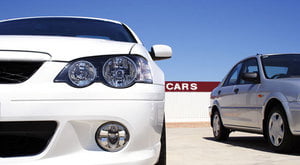There are many situations in which the question arises: can I insure a car that I don’t legally own? For instance, kids may want to insure cars which their parents originally bought them, even though the vehicle is titled to the parents. Also, people may borrow or use a friend or family member’s car, truck, or SUV often or for an extended period of time. The simple answer is “yes,” you can indeed insure a car that you don’t own. However, there are a couple of methods of doing so, neither of which are very well-known. The best method will depend on your individual circumstances.
If you are driving a car which you have borrowed from a friend or family member, and you have had possession of this vehicle for longer than 30 days, then you and your friend may be able to sign documents giving you “right of possession,” meaning that the vehicle could be registered and insured in your name. You must check with a local insurance agent well-versed in the insurance regulations pertaining to your state, however, to learn if this method is permitted in your state of residence.
Alternatively, you can get what is known as a non-owners insurance policy. This type of policy will provide you with liability coverage for yourself in the case of an accident. Typically, a non-owners insurance policy is significantly cheaper. In order to find out how much it will cost you, be sure to get a car insurance quote online from at least two or three carriers. This way you can ensure that you are getting the best deal you can.
Typically, you cannot carry comprehensive or collision coverage on this type of policy — only liability. Non-owners insurance policies are offered by the majority of auto insurers, and they are especially popular among businesspeople who drive rental cars very frequently, as it is often more budget-friendly than shelling out for the overpriced coverage offered by the rental car company itself each and every time. If, on the contrary, you have borrowed the vehicle from a friend or relative, and you are involved in an accident, then the original owner’s auto insurance policy will pay out initially, and your non-owners insurance policy will kick in only if the damages exceed the original policyholder’s liability limits.
Lastly, always to speak to a knowledgeable insurance broker or insurer representative before you try to insure a car not titled in your name. We have endeavored to provide you the most accurate information possible; however, insurance regulations vary widely from state to state, and often become very complicated. The same goes for similar questions regarding auto insurance, such as whether or not you can insure a car without a drivers license.
